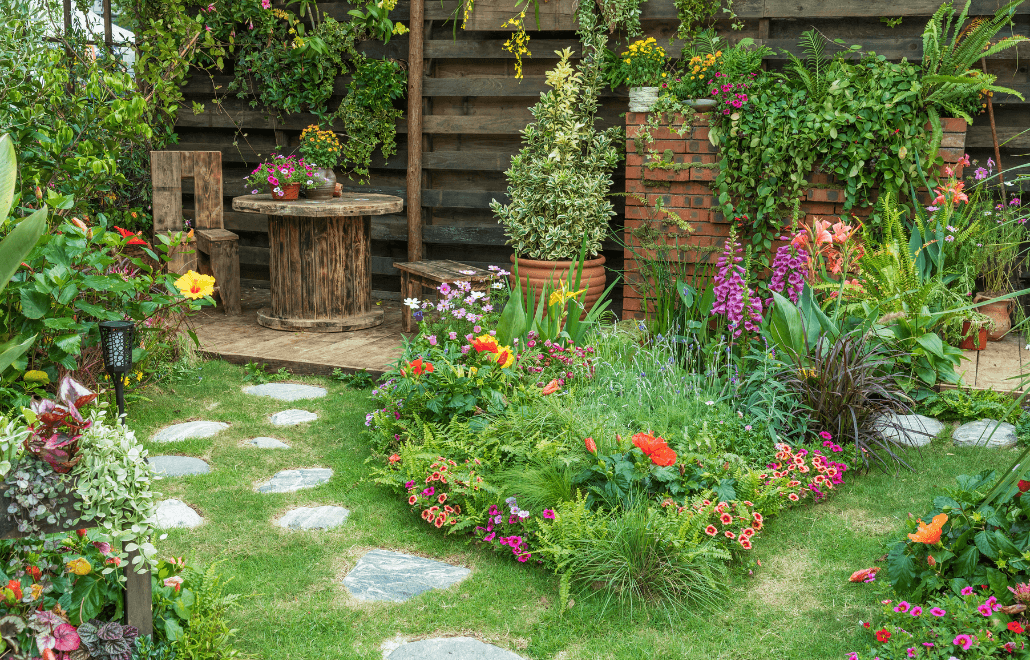
23 Jul Protecting Your Garden Oasis: Organic Pest Control Solutions for Summer
Your garden oasis is a sanctuary of greenery and tranquility, but it’s also a buffet for pests eager to munch on your plants. As summer rolls in, so do aphids, beetles, and other garden invaders. Rather than resorting to harsh chemicals that can harm beneficial insects and the environment, consider these organic pest control solutions to keep your garden thriving and pest-free:
1. Companion Planting:
Harness the power of nature by planting pest-repelling herbs and flowers alongside your vegetables and flowers. Examples include:
– Marigolds: Their strong scent deters aphids, nematodes, and other pests.
– Basil: Repels mosquitoes, flies, and aphids while enhancing the flavor of nearby tomatoes.
– Lavender: Attracts pollinators like bees while repelling moths, fleas, and mosquitoes.
2. Neem Oil:
Derived from the neem tree, neem oil acts as a natural insecticide and repellent. Dilute neem oil with water and spray it on affected plants to deter aphids, beetles, and caterpillars. Repeat every 7-14 days or after rainfall for continued protection.
3. Garlic and Chili Pepper Spray:
Create a homemade spray by blending garlic cloves and chili peppers with water. Strain the mixture and add a few drops of dish soap. Spray it on plants to repel aphids, spider mites, and other soft-bodied insects. Test on a small area of your plants first to ensure they tolerate the spray.
4. Diatomaceous Earth (DE):
DE is a fine powder made from fossilized algae. Sprinkle it around the base of plants or directly on leaves to create a barrier that deters slugs, beetles, and other crawling insects. DE works by absorbing lipids from the exoskeleton of insects, causing them to dehydrate and die.
5. Beer Traps for Slugs and Snails:
Fill shallow containers with beer and bury them up to the rim in your garden. Slugs and snails are attracted to the beer, crawl in, and drown. Empty and refill the traps regularly for ongoing control.
6. Beneficial Insects:
Introduce beneficial insects like ladybugs, lacewings, and predatory mites to your garden. These natural predators feed on pests like aphids, caterpillars, and spider mites without harming your plants. You can purchase beneficial insects from garden centers or online suppliers.
7. Row Covers and Netting:
Protect vulnerable plants from pests by covering them with lightweight row covers or netting. These physical barriers prevent insects from reaching your crops while allowing sunlight, air, and water to pass through. Secure the covers tightly to prevent pests from sneaking underneath.
8. Hand-Picking and Pruning:
Regularly inspect your plants for pests and remove them by hand. Prune affected leaves and branches to reduce pest populations and prevent infestations from spreading. Dispose of infested plant debris in sealed bags to prevent pests from returning.
9. Cultural Practices:
Practice good garden hygiene by keeping your garden clean and free of weeds, fallen leaves, and debris that can harbor pests. Rotate crops annually to disrupt pest life cycles and reduce the buildup of specific pest populations in the soil.
10. Educating Yourself and Others:
Share your knowledge of organic pest control solutions with fellow gardeners and community members. Encourage sustainable gardening practices that promote harmony between plants, insects, and the environment.
By integrating these organic pest control solutions into your gardening routine, you can protect your garden oasis from pests while promoting a healthy and thriving ecosystem. Embrace nature’s solutions and enjoy a bountiful harvest of organic produce and beautiful blooms throughout the summer months.



